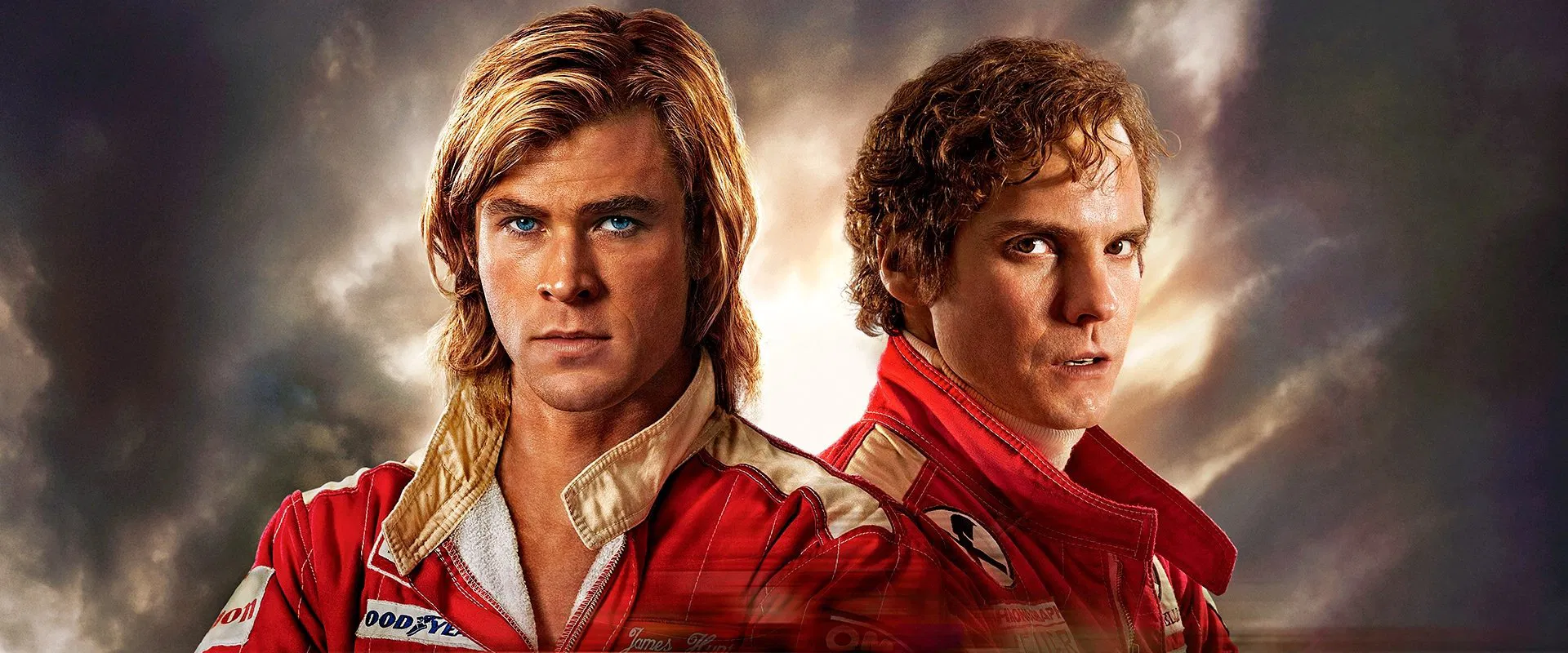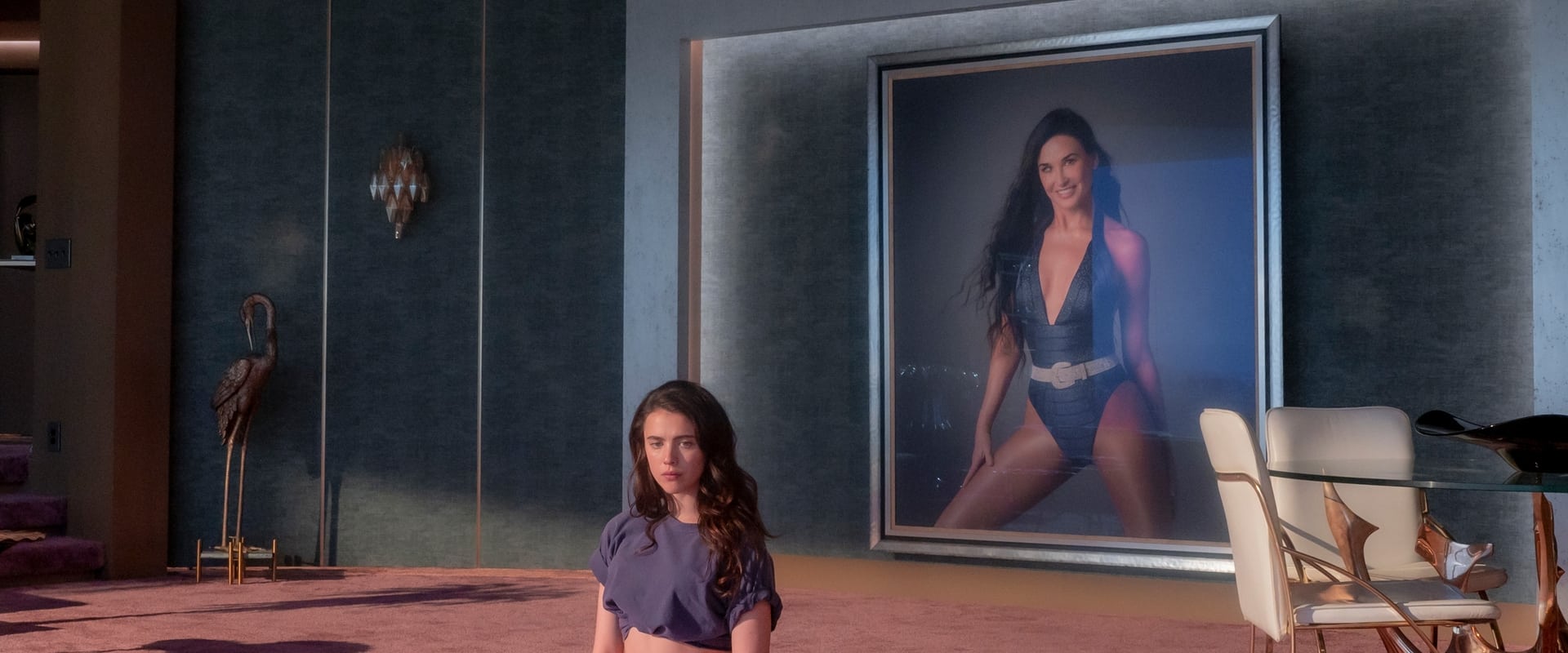Ron Howard’s Rush is one of those rare biopics that doesn’t just aim to commemorate a sporting rivalry but detonates it—the screen ignites with the combustive, contrary energies of two men locked in the dance of mortal ambition. It’s almost a shock to realize how few films about sports—especially Formula 1, that most hermetic and mathematical of sports—are ever this fevered, this alive. To watch Rush after the slick digital simulation of F1 (2025, all charisma and CGI with Brad Pitt doing his Chuck Yeager-for-the-Instagram-era routine) is to remember what the movies can do when they’re brave enough to embrace mess and contradiction, and to dignify sport’s delirium rather than just illustrate it.
Howard doesn’t let the scent of high-octane fuel become aesthetic wallpaper. Instead, every frame seems to sweat. Rush is thick with the texture of the 1970s: the cigarettes dangling from drivers’ mouths, the gold-tinged sun shot through paddock smoke, and above all, the barely concealed joy these men take in flirting with oblivion. Here, even the rubber on the tarmac seems to have a pulse, as if every molecule in the film is just that much more awake.
But the film’s core—its wild, beating heart—lies in the beautifully electric, persistent churn of Hunt and Lauda’s relationship. It’s a relationship predicated less on enmity than on that odd intimacy only rivals truly understand. James Hunt: golden, shaggy, cocky, virile—the poster child for living out loud, burning through pleasure and pain with equal disinterest in tomorrow. Niki Lauda: the Austrian automaton, all precision and calculation, charisma submerged beneath ice-water logic and a permanent scowl. Howard and Peter Morgan’s screenplay are wise enough to understand that these opposites aren’t symmetrical, but are instead mutually necessary. They don’t just drive each other—they need each other to exist on screen.
Daniel Brühl, playing Lauda, takes the idea of an athlete obsessed and makes it almost monastic; you believe absolutely in this man’s capacity to alienate every soul in a ten-mile radius for the sake of crossing the finish line first. He vibrates with suppressed fury and dignity. And across from him, Chris Hemsworth—finally allowed to use both his body and wit in equal measure—gives us Hunt as both boyish daredevil and tragic fool. Rarely has bravado looked so sexy and so hollow within the same film. The pleasure here isn’t merely watching them spar, but studying—moment to moment—how each seems at times to long for the other’s limitations and gifts.
What the film gets, in a way so few movies do, is that authentic rivalry is a peculiar form of kinship. What Hunt and Lauda share is a species of respect so brittle and so necessary that it looks, superficially, like loathing. The pulse of their interaction is always modulated by admiration as well as irritation. When Hunt, seething with embarrassment, yet brims with admiration for Lauda, you can sense something like love—however non-negotiable and unspoken—burning in the background.
Howard paces this film with something approaching virtuosity—a feat for a director not often accused of subtlety. Most sports dramas drag, especially when the trophy is in sight and the script must pause to spell out stakes. Rush never jams the brakes. The movie clocks in under two hours but moves with the pressure and insistence of a race itself—accelerating, coasting, taking calculated turns. Hans Zimmer’s score crackles; it doesn’t paint heroics in broad orchestral strokes but keeps us riding along the nervous edge of catastrophe.
The climax, the Japanese Grand Prix under a pummeling curtain of rain, is the kind of set piece directors dream about. It’s more than just suspense—it’s a demonstration: how courage, sanity, and self-destruction can all occupy the same cockpit. Niki’s refusal to chase glory through the fog is perhaps the film’s most stunning gesture—a hero stepping outside the hysterical mythology of victory and survival. One could quibble: real-life Hunt and Lauda, it turns out, weren’t gladiators of cold disdain but something closer to friendly antagonists, and Rush sandpapers the messier edges of their affection for dramatic effect. But these are liberties I’ll allow; the emotional truth feels deeper than journalism, and that authenticity is what matters in the dark.
Some moments stay with you: James smashing the journalist who tried to score cruelty-points off Niki’s wounds (a rare moment of impulsive decency amidst all the barroom animalism), or the way Daniel Brühl makes introversion look valiant, and Hemsworth’s playboy feels less like a buffoon and more like a man racing from his own, smaller fears.
For all the noise, the tire smoke, and the mechanics, Rush is a film about drive in its purest sense. The drive to be seen, to outpace another, to find significance in surpassing yourself—and to discover, if only for a season, a worthy adversary who makes you more yourself than you could ever become alone. Howard’s film is as much about the cost of competition as its rewards, refusing the simple fable of genius versus rebel. In the end, it is a hot-blooded reminder that success wears many faces, and that sometimes the victory is simply crawling through the danger and loneliness—past the finish line of fear.
If F1 is about the cool allure of being the fastest, Rush is about the animal ache for meaning, whatever skin it wears. Success, it tells us, isn’t an attribute you inherit—it’s the bruised, sweaty result of refusing to let yourself coast, and the beauty (and ambivalence) that comes from knowing that the only person more dangerous than you is the rival who truly sees you.
Rush isn’t just a sports movie. It’s a testament to the bracing, risky act of choosing rivals who show us, if only in the rearview mirror, why we’re still alive.


